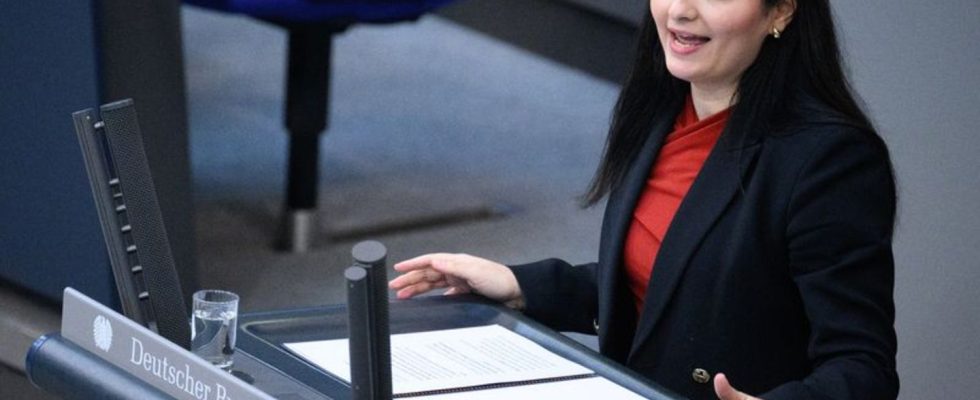extremism
Federal Commissioner: Protest must be evident in everyday life
Concern about right-wing extremism has reached the majority of society, says Reem Alabali-Radovan (SPD). photo
© Bernd von Jutrczenka/dpa
For the third weekend in a row, tens of thousands of people across the country took to the streets against the right. Will the protests continue? And are they damaging the AfD?
She would like everyone to actively talk to their family, friends or club and to intervene in cases of racism and conspiracy theories: “Facing the confrontation, even if it sometimes becomes difficult on an interpersonal level,” she said.
On January 10th, the Correctiv research center reported on a meeting of radical right-wingers in which some AfD politicians as well as individual members of the CDU and the very conservative Values Union took part in Potsdam. The former head of the right-wing extremist Identitarian Movement in Austria, Martin Sellner, said he spoke about “remigration” at the meeting on November 25th. When right-wing extremists use the term, they usually mean that large numbers of people of foreign origin should leave the country – even under duress. According to Correctiv, Sellner named three target groups: asylum seekers, foreigners with the right to remain and “unassimilated citizens.”
Hundreds of thousands against the right on the street
Since the revelations, people across the country have been taking to the streets against the right. Last weekend, like the weekend before, there were hundreds of thousands in many large and also smaller cities. According to the police, around 100,000 people took to the streets in Düsseldorf alone on Saturday. According to the police, there were around 60,000 people in Hamburg on Sunday, and the Fridays for Future movement as co-organizer even spoke to around 100,000 people. In dozens of other cities, thousands of people took part in the protests, which were also directed against the AfD.
In the Saale-Orla district in eastern Thuringia, the AfD lost the runoff election despite a clear lead in the first round. The CDU candidate Christian Herrgott prevailed on Sunday with 52.4 percent of the vote against AfD man Uwe Thrum with 47.6 percent, as the state returning officer announced. The AfD had hoped for the second district office in the country after Robert Sesselmann in Sonneberg, also in Thuringia. In Thuringia and the Saale-Orla district, initiatives mobilized against Thrum’s election.
In Thuringia, Saxony and Brandenburg, new state parliaments will be elected in September. In all three federal states, the AfD is currently the strongest force in surveys.
Demonstrations also in small towns
Bundestag Vice President Katrin Göring-Eckardt is encouraged by the ongoing protests against the right. “The demonstrations are encouraging – throughout the country, but especially in East Germany,” said the Green politician from Thuringia to the Editorial Network Germany (RND). “We fought for democracy there in 1989, now it’s time to defend it again.” Göring-Eckardt added: “People are standing up not only in the big cities, but also in many smaller towns. Some people are taking part in a demonstration here for the first time.”
Former Federal President Christian Wulff (CDU) described the protests against right-wing extremism as “something big” that deeply impressed him. Even people who competed politically in everyday life were united “by the seriousness of the situation,” Wulff told the “Tagesspiegel”. Never again should a minority in Germany be left alone if they are threatened. Wulff also attacked the AfD. The party largely acts against human dignity, the rule of law and democracy. If the AfD were to gain influence, it would not only massively endanger minorities, “but would harm the entire country,” warned Wulff.

